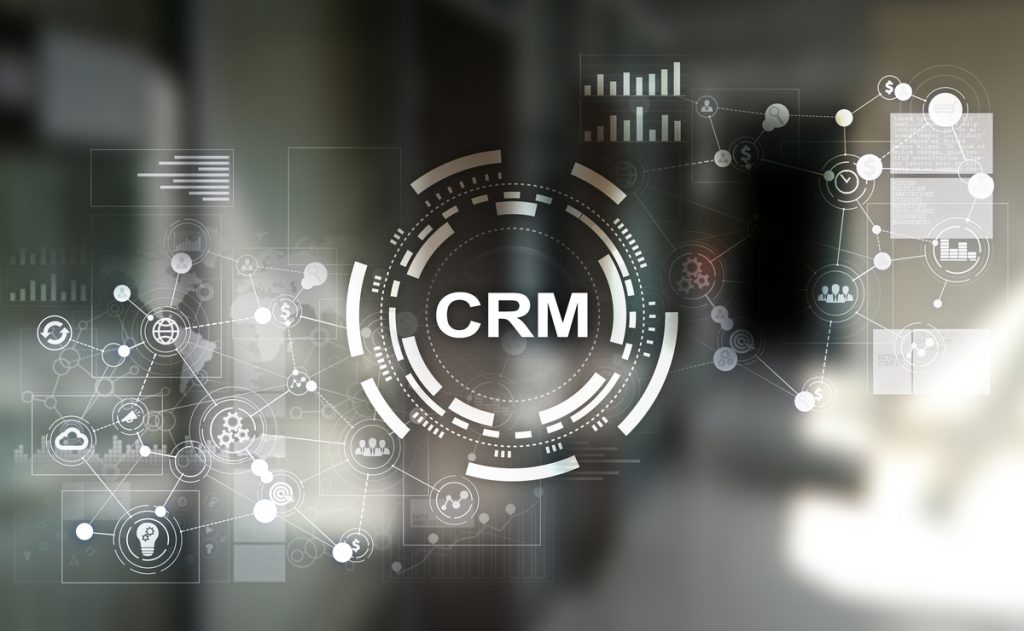Highlights:
- CRM software is a platform that benefits retailers and customers alike. A set of tools is provided to businesses to help them create strong, enduring relationships with their customers.
- The buyer’s journey for each prospect you interact with can be tracked using a CRM or customer relationship management system, allowing you to manage data and develop personalized communications.
Companies are focused on building and maintaining long-term customer relationships; having a centralized system to manage interactions, track customer data, and streamline communication becomes paramount. Consequently, a strong and effective customer relationship management (CRM) platform is essential for businesses in today’s competitive market.
A CRM platform offers a wide range of benefits, from improving customer satisfaction and retention to enhancing sales and marketing efforts. In this blog, we will explore the importance of a CRM platform and how it can significantly impact your business’s success and growth.
What is Customer Relationship Management?
“How you gather, manage and use information will determine whether you win or lose.” – Bill Gates, Co-founder of Microsoft Corporation.
Customer relationship management (CRM) software is a tool that’s made to assist your business in providing customers with a distinctive and seamless experience and fostering better relationships. You can track sales, organize and prioritize prospects, and facilitate team communication while getting a complete picture of all client interactions.
CRM systems gather customer information from various contact places between them and the business, such as the company’s website, phone line, live chat, direct mail, marketing materials, and social media.
Why Does Your Business Needs CRM Software?
Using a CRM, or customer relationship management system, you can manage data, create personalized communications, and track the buyer’s journey for each prospect you work with. Here are some possible areas where customer relationship management for small companies and big ones will work:
Focus on your customers to increase your business
As friction is an inevitable byproduct of business growth, it might be simple for valuable leads to slip through the cracks when your company enters a period of rapid expansion.
With the help of CRM, you can design your company to appeal to your target population and customers. With various natively developed tools and integrations, the CRM unifies all the work your sales, marketing, and service teams complete. This makes it simple to focus your company goals and day-to-day activities around your customers.
Easy data sharing and syncing
A customer relationship management (CRM) system streamlines processes and eliminates the manual effort required to update contact information by automating tasks such as data synchronization and sharing. Regardless of whether a customer is contacted by the sales, support, or marketing team, the CRM ensures that all contact records and data are instantly synchronized and updated in the system, saving time and ensuring accuracy.
By syncing your team’s data and every interaction with a customer, you can easily share accurate records with your team from within the platform. Your CRM thus becomes a source of truth for your data. This makes it simple for your team to create distinctive customer experiences.
Incomplete and incorrect customer data
For brands, having complete and accurate data is a significant concern. Effective CRM solutions address this issue by intelligently eliminating duplicate entries and automatically filling in missing information from second and third-party accounts and contacts, ensuring the reliability and integrity of the data.
Manage unidentified high-value accounts
Knowing who your top customers are makes it easier to avoid making them feel undervalued. Any employee who interacts with customers can recognize them, offer the appropriate rewards, and nurture them with the help of the right CRM technology, which will help them grow in customer loyalty.
Automate the business processes
Most firms have updated their business operations by automating several processes to save time, money, and effort. Automating routine processes like deal management and data entry may increase staff productivity and boost your company’s revenue. Furthermore, unlike a careless person, a properly developed algorithm will never disappoint you.
To satisfy client wants and requirements in all facets of your organization, CRM software connects with various additional third-party applications, such as accounting, project management, and data processing.
Approach While Using CRM Properly
Implementing a CRM system poses a significant challenge for organizations as it requires comprehensive change management across all levels and involves the participation of all employees. Here are some recommended practices to guide the implementation process:
Customization
Your CRM needs to represent your sales process. This means that it corresponds closely to the stages a client experiences starting with:
Lead – and gt; Opportunity- and gt; Customer
It is essential to have a fundamental grasp of these stages. If you need to understand your sales process, dedicate a few weeks to observing and documenting how customers engage with your products and solutions.
Afterward, you can establish personalized attributes and store your data accordingly. The CRM system will include the necessary “properties” or information about your potential customers. Certain CRM systems provide city, date, phone number, and email address fields.
Add your contacts, businesses, and deals
You manage your prospects and opportunities using a different CRM or spreadsheet.
Almost all CRMs allow you to import this data by uploading a CSV file. To ensure that your data transfers between your old and new systems without errors, each column in your spreadsheet should correspond to a contact property in the CRM.
Develop clear targets
Clearly define the desired outcomes you aim to achieve through CRM implementation. Whether it’s increasing revenue, generating quality leads, or enhancing customer satisfaction, align your focus on the specific features and capabilities of the CRM that will best serve your organization. Setting clear objectives will enable you to optimize the use of CRM for maximum effectiveness in meeting your goals.
Choose the proper CRM
Numerous CRM software options are available, each with unique advantages and disadvantages. Choose a CRM that best suits your business by doing below research:
- Your business needs and demands
- User-friendliness of CRM
- Compatibility with other tools and applications
- Mobile-accessibility
- Scalability
- Pricing
Don’t use copies
Designing a process that prevents duplication while maintaining user freedom is challenging. A type of duplicate prevention or notification is present in most CRM systems. You should, without a doubt, consider what the system tells you when you make a new record.
Some CRM will offer you a record that you could link the email to when you’re making a new record from an email. If not, try typing the name of the record you want to make, and you might be surprised to learn that it already exists.
Key Benefits of Customer Relationship Management
CRM software is a versatile platform that benefits both customers and businesses. It equips companies with various tools to foster strong and enduring client relationships. The advantages of CRM span the entire sales process, encompassing lead generation, customer conversion, and nurturing loyalty, ultimately ensuring customer satisfaction and retention.
- Better customer service: With a CRM system in place, businesses can easily monitor and address client questions and problems, which results in quicker response times and increased client satisfaction.
- Effective marketing: CRM enables companies to divide up their customer base into different segments and target each section with campaigns that are pertinent to each segment. Effective and affordable marketing campaigns may result from this.
- Increased sales: Companies can improve sales and revenue by better tailoring marketing and sales efforts. This is done by understanding customer needs.
- The collaboration will improve: CRM systems allow various teams to share customer information and work together on sales and marketing initiatives.
- Improved data analysis: CRM systems give companies helpful information and insights about their clients, enabling them to decide on marketing, sales, and customer service strategies.
Bottom-line
A customer relationship management platform facilitates a more profound comprehension of customers by organizing and presenting data. This enables businesses to deliver superior customer care through enhanced messaging and automated outreach while also reducing silos between teams. Customer relationship management will become increasingly data-driven, personalized, and technologically integrated as we move forward.
By embracing and leveraging the capabilities of a CRM platform, organizations can foster strong customer relationships, optimize their sales and marketing efforts, and ultimately achieve sustainable success in the long run.












